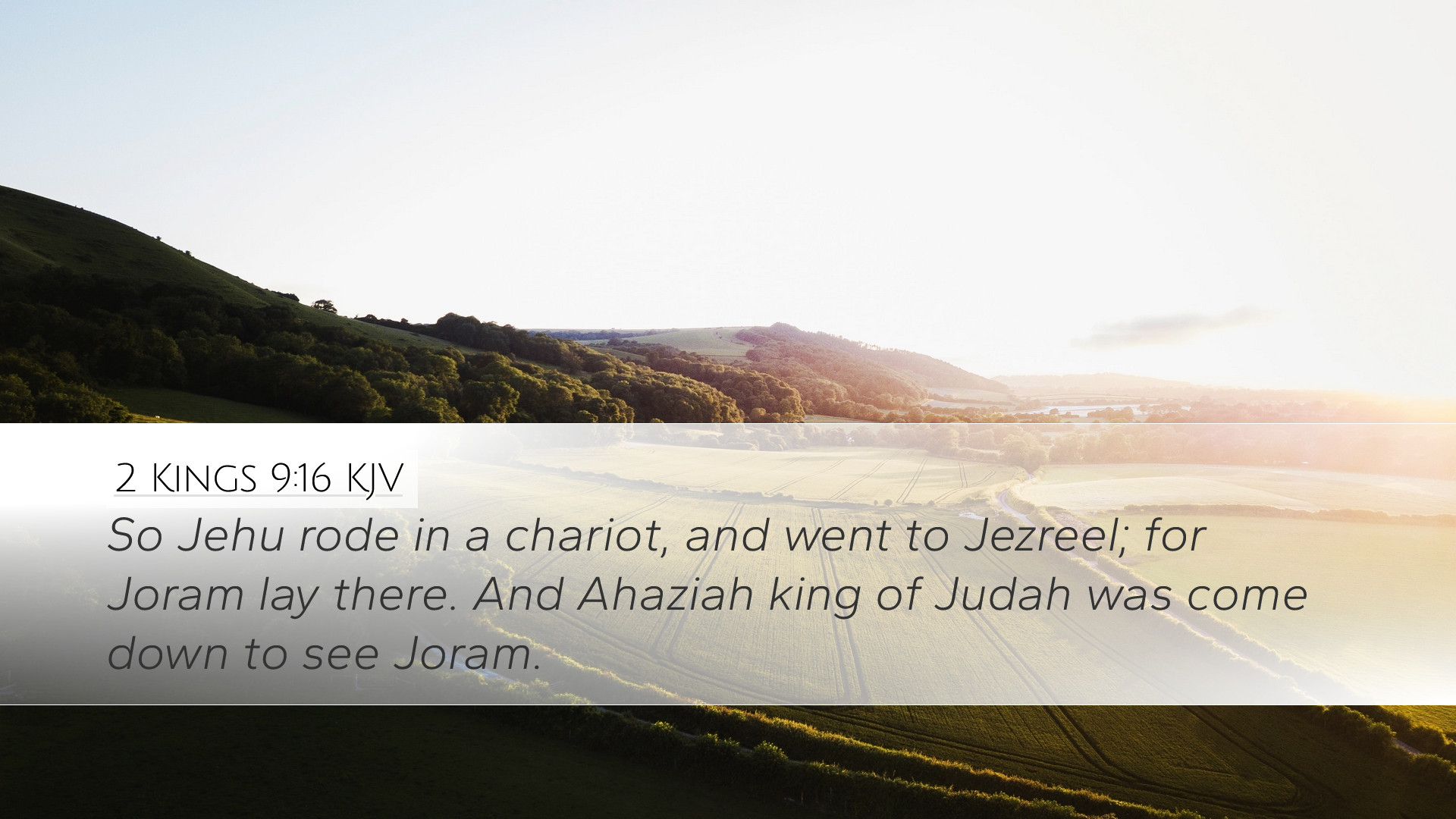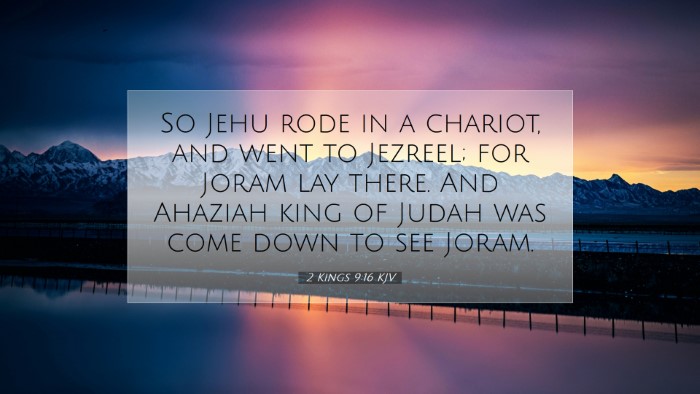Commentary on 2 Kings 9:16
In 2 Kings 9:16, we see the moment of decisive leadership where Jehu is anointed king over Israel. This passage is significant, as it marks the fulfillment of God’s judgment against the house of Ahab and the Baal worship in Israel.
Contextual Background
The backdrop of this verse is rooted in the tumultuous reign of Ahab and the subsequent leaders of Israel. God's judgment had been pronounced against Ahab's house, and the rise of Jehu occurs amidst divine instruction to eliminate the worship of Baal and push back against idolatry.
Verse Analysis
“And Jehu said, ‘Come with me, and see my zeal for the Lord.’” This invitation is pivotal, as it emphasizes both the personal commitment of Jehu and the broader implications of his actions. His zeal reflects a deepened sense of duty to restore worship due to Yahweh.
Insights from Matthew Henry
- Divine Sovereignty: Henry emphasizes that God’s hand is evident in the elevation of Jehu, showcasing that the Lord orchestrates the rise of leaders according to His plan.
- Zeal for God: Jehu’s fervor is a reflection of what it means to be conscientious in leadership. Henry asserts that true leadership demands not only authority but a passion for righteousness.
- Call for Commitment: The call to witness his zeal is a call to action for those who follow God. It serves as an example for present-day believers to exhibit similar zeal in their commitments to the Lord.
Insights from Albert Barnes
- Character of Jehu: Barnes details Jehu’s complex character, acknowledging both his zealousness and his flaws. Emphasizing passion must be coupled with righteous actions.
- Baalism in Israel: The significance of combating Baalism forms a substantial theme in Barnes' commentary. Jehu's anointing is a divine response to the pervasive idolatry needing to be eradicated.
- Prophetic Fulfillment: Barnes connects this anointing to the prophetic declarations made earlier, affirming the scriptural consistency and integrity of God’s plan throughout Israel’s history.
Insights from Adam Clarke
- Historical Context: Clarke provides a detailed historical analysis of Jehu stirringly describing the political unrest of the period, enabling a deeper understanding of the regional dynamics influencing Israel.
- Zeal as a Virtue: Jehu’s “zeal” is more than mere enthusiasm; Clarke interprets it as a theological conviction that must guide one's actions. He points out that zeal without knowledge can lead to chaos.
- Symbol of Change: The anointing serves as a symbol of transformation for the nation. Clarke highlights that leadership transition often serves as a critical juncture for divine purposes to be fulfilled.
Theological Implications
In examining this verse, one can identify critical theological motifs:
- God’s Sovereignty: The anointing of Jehu acts as a reminder of God's active role in human affairs, especially concerning leadership.
- Call to Action: The invitation to witness Jehu’s zeal poses a reflective challenge to modern believers—are they equally devoted in their faith journey?
- Righteous Leadership: Jehu is portrayed as a complicated leader whose zeal is commendable, yet he ultimately exemplifies the challenges of human imperfection in fulfilling divine mandates.
Application for Today’s Believers
This scripture challenges contemporary followers of Christ to:
- Embrace a spirit of zeal that aligns with God’s purposes.
- Engage in the fight against spiritual complacency and idolatry within their own lives and communities.
- Recognize that while divine authority is central, personal character and integrity are equally essential in leadership.
Conclusion
2 Kings 9:16 serves not only as a historical recounting but invites believers to reflect upon their role in God’s unfolding narrative. Through the lens of Jehu’s anointing, we are reminded of our responsibilities as leaders, followers, and witnesses of God’s miraculous works within our communities.


